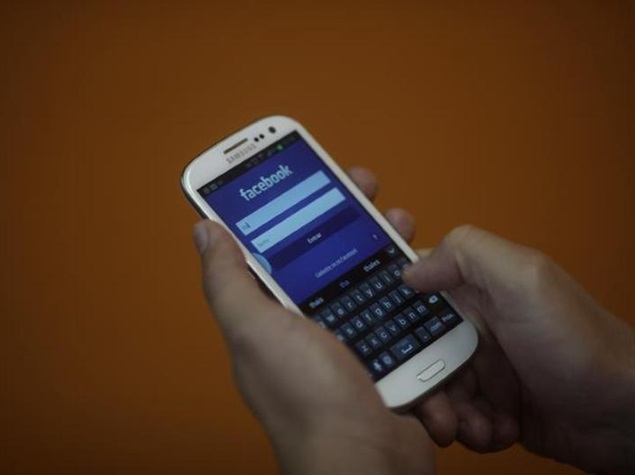- Home
- Social networking
- Social networking News
- Facebook Launches Business Training Program in Sao Paulo Favela
Facebook Launches Business Training Program in Sao Paulo Favela

Under the program, computer use and classes will be offered to entrepreneurs in the poorer slum district of Heliopolis to help them reach more consumers.
The training program, dubbed "Facebook in the community," puts the company inside a largely uncharted social media market.
"This is a pioneering project, an innovation lab with 15 computers to deliver knowledge and training to the community and demonstrate how a page can be useful for a small firm," said Patrick Hruby from Facebook in Latin America.
The initiative, intended as a pilot for other deprived communities on the outskirts of Brazil's business hub, also offers training in management skills, computing and marketing.
Brazil, with a population of around 200 million, boasts one of the world's biggest and most media savvy online communities.
According to official figures, the country is already one of the world's top six information technology and communications markets.
The room for growth is vast.
Brazil's 12.3 million favela residents are gradually gaining economic clout, with businesses in the country's slums generating some $20 billion a year, according to research from consulting firm Data Popular.
Hot dog catalyst
Hruby explained the idea for the training emerged after he spoke at a business forum in Rio to the owner of a hotdog stall in that city's sprawling slum of Rocinha.
"He told us that 70 percent of his sales came via Facebook. That is, he was doing business through his customers via his profile."
That conversation set in motion the search for tools to help other small businesses tap into the same source of revenue.
With some 200,000 inhabitants, Heliopolis is home to around 5,000 assorted small businesses ranging from hairdressers and clothes stores to restaurants and fruit and vegetable stands.
According to Facebook, only a small number of the business owners use the Internet to engage consumers and boost sales even though most have a personal Facebook profile.
"Were it not for the Internet and social media networks we couldn't have done this," Victor de Souza, a 26-year-old photographer who along with a friend created a photo and video studio.
The pair work primarily on events within the favela but have been gradually branching out to win clients beyond the slum thanks to their Internet presence.
"If we are on the net, then we're out there in the world," De Souza told AFP.
Hairdresser Eder Camargo, 32, agreed.
"Most of my customers book their visits over Facebook. It's a great work tool."
Camargo adds the new program will allow him to get up to speed with the accounting side of business.
Facebook will benefit from the advertising generated by the program inside the slums, while small businesses can learn new tools to tap into the web.
The program came about due to a partnership that included community organizer Unas.
"Our people are earning more, consuming more and this is a good business opportunity," said Cleide Alves, head of the Unas community association.
"For us it is important to have wider access to the Internet and technology. And for Facebook too it is important to come into a community such as ours," Alves said.
For the latest tech news and reviews, follow Gadgets 360 on X, Facebook, WhatsApp, Threads and Google News. For the latest videos on gadgets and tech, subscribe to our YouTube channel. If you want to know everything about top influencers, follow our in-house Who'sThat360 on Instagram and YouTube.
Related Stories
- Samsung Galaxy Unpacked 2025
- ChatGPT
- Redmi Note 14 Pro+
- iPhone 16
- Apple Vision Pro
- Oneplus 12
- OnePlus Nord CE 3 Lite 5G
- iPhone 13
- Xiaomi 14 Pro
- Oppo Find N3
- Tecno Spark Go (2023)
- Realme V30
- Best Phones Under 25000
- Samsung Galaxy S24 Series
- Cryptocurrency
- iQoo 12
- Samsung Galaxy S24 Ultra
- Giottus
- Samsung Galaxy Z Flip 5
- Apple 'Scary Fast'
- Housefull 5
- GoPro Hero 12 Black Review
- Invincible Season 2
- JioGlass
- HD Ready TV
- Laptop Under 50000
- Smartwatch Under 10000
- Latest Mobile Phones
- Compare Phones
- Moto G15 Power
- Moto G15
- Realme 14x 5G
- Poco M7 Pro 5G
- Poco C75 5G
- Vivo Y300 (China)
- HMD Arc
- Lava Blaze Duo 5G
- Asus Zenbook S 14
- MacBook Pro 16-inch (M4 Max, 2024)
- Honor Pad V9
- Tecno Megapad 11
- Redmi Watch 5
- Huawei Watch Ultimate Design
- Sony 65 Inches Ultra HD (4K) LED Smart TV (KD-65X74L)
- TCL 55 Inches Ultra HD (4K) LED Smart TV (55C61B)
- Sony PlayStation 5 Pro
- Sony PlayStation 5 Slim Digital Edition
- Blue Star 1.5 Ton 3 Star Inverter Split AC (IC318DNUHC)
- Blue Star 1.5 Ton 3 Star Inverter Split AC (IA318VKU)
















